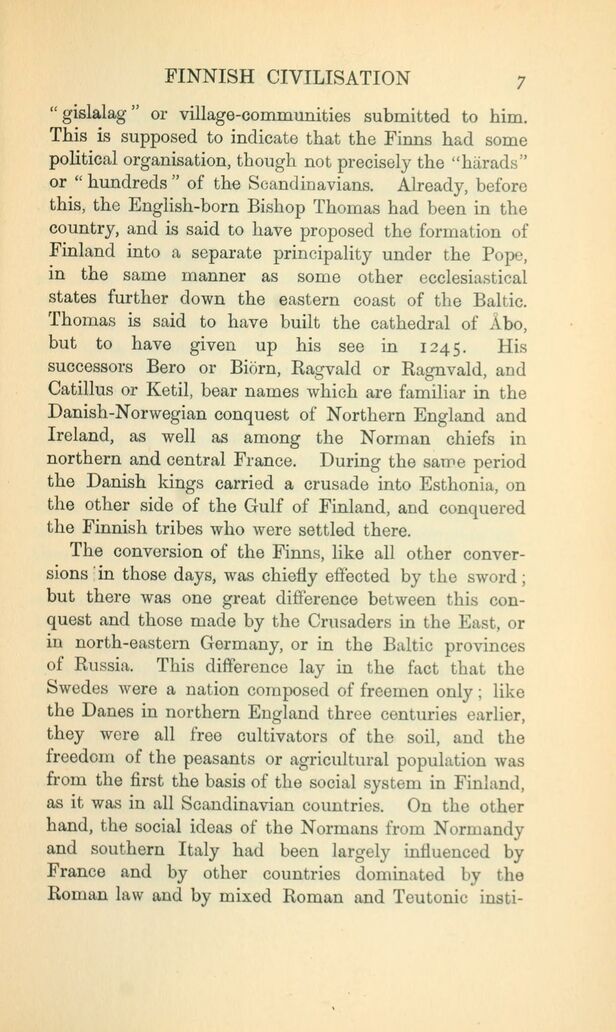
Full resolution (JPEG) - On this page / på denna sida - I. Peculiarities of Finnish Civilisation

<< prev. page << föreg. sida << >> nästa sida >> next page >>
Below is the raw OCR text
from the above scanned image.
Do you see an error? Proofread the page now!
Här nedan syns maskintolkade texten från faksimilbilden ovan.
Ser du något fel? Korrekturläs sidan nu!
This page has been proofread at least once.
(diff)
(history)
Denna sida har korrekturlästs minst en gång.
(skillnad)
(historik)
“gislalag” or village-communities submitted to him.
This is supposed to indicate that the Finns had some
political organisation, though not precisely the “härads”
or “hundreds” of the Scandinavians. Already, before
this, the English-born Bishop Thomas had been in the
country, and is said to have proposed the formation of
Finland into a separate principality under the Pope,
in the same manner as some other ecclesiastical
states further down the eastern coast of the Baltic.
Thomas is said to have built the cathedral of Åbo,
but to have given up his see in 1245. His
successors Bero or Biörn, Ragvald or Ragnvald, and
Catillus or Ketil, bear names which are familiar in the
Danish-Norwegian conquest of Northern England and
Ireland, as well as among the Norman chiefs in
northern and central France. During the same period
the Danish kings carried a crusade into Esthonia, on
the other side of the Gulf of Finland, and conquered
the Finnish tribes who were settled there.
The conversion of the Finns, like all other conversions
in those days, was chiefly effected by the sword;
but there was one great difference between this
conquest and those made by the Crusaders in the East, or
in north-eastern Germany, or in the Baltic provinces
of Russia. This difference lay in the fact that the
Swedes were a nation composed of freemen only; like
the Danes in northern England three centuries earlier,
they were all free cultivators of the soil, and the
freedom of the peasants or agricultural population was
from the first the basis of the social system in Finland,
as it was in all Scandinavian countries. On the other
hand, the social ideas of the Normans from Normandy
and southern Italy had been largely influenced by
France and by other countries dominated by the
Roman law and by mixed Roman and Teutonic
<< prev. page << föreg. sida << >> nästa sida >> next page >>